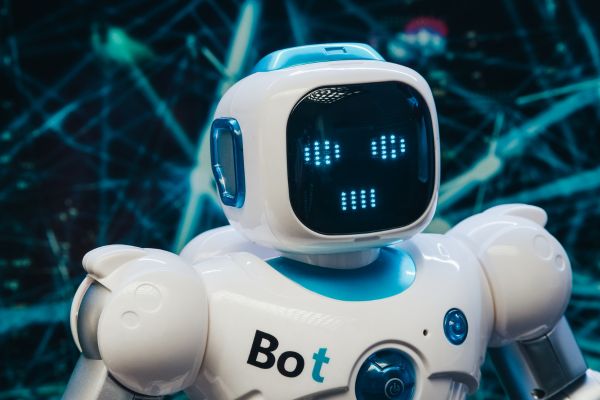Thanks to the rapid advancements in artificial intelligence technology, content generation has become a seamless and efficient process for marketers. Embracing AI-powered content creation tools can significantly benefit marketers by producing high-quality, audience-oriented, and on-brand content. In this article, we will explore the top types of AI-generated content in marketing, updated for 2023, based on insights from HubSpot’s State of AI survey.
Social Media Posts (58%)
Social media posts remain the most popular type of content generated using AI in marketing. AI-driven content assistants assist social media marketers in managing their content calendars effortlessly. Marketers can leverage AI in various ways:
- Content Creation: AI tools help generate content ideas, suggest topics, and even craft headlines for social media posts. About 35% of surveyed marketers use AI for inspiration and ideation.
- Scheduling and Posting: AI-powered social media scheduling tools automatically post content at optimal times, maximizing engagement. These tools can also optimize content for specific social media platforms.
- Audience Analytics: AI-driven data analysis provides valuable insights into audience preferences, enabling marketers to create more effective and relevant social media posts.
Product Descriptions (50%)
AI proves helpful in creating compelling product descriptions, with 50% of marketers finding it beneficial for this purpose. Crafting descriptions that resonate with diverse audiences can be challenging, but AI helps bridge the gap between technical jargon and accessible language.
Emails (43%)
Email marketing remains a powerful tool for nurturing customer relationships and driving conversions. AI-driven tools enhance email marketing strategies through:
a. Timing Optimization: AI analyzes user behavior and suggests the best times to send emails, maximizing open rates and CTRs.
b. Subject Line Generation: Leveraging past campaign data, AI generates effective and captivating subject lines, increasing email open rates.
c. A/B Testing: AI conducts A/B testing to identify the best-performing email variant, enabling marketers to optimize campaigns for better results.
Images (36%)
AI-generated images gain popularity among marketers, as 36% find them valuable for various applications, such as enhancing search engine rankings and creating more attention-grabbing content for blogs, social media, and product staging.
Also Read: CRM vs. CMS: How to Use Both for Your Online Business
Blog Posts (35%)
AI-powered writing generators continue to assist marketers in creating blog posts more efficiently and effectively. By automating tasks like topic generation, research, and drafting, AI saves time and resources, allowing marketers to focus on more strategic aspects.
Landing Pages (19%)
Landing pages are essential for driving conversions and delivering a seamless user experience. AI helps marketers optimize landing pages through:
a. A/B Testing: AI and machine learning algorithms analyse user behaviour, identifying the most effective page elements. This information enables marketers to create variations and run A/B tests, ultimately leading to higher conversion rates.
b. Optimization: AI-aided analytics delve into bounce times, load times, and other data, providing insights to optimise landing pages for better user engagement.
Ebooks (17%)
While AI can streamline certain aspects of ebook creation, some challenges remain. Tone and style intricacies, authenticity, and potential legal concerns highlight limitations in fully relying on AI for generating ebooks.
Whitepapers (12%)
According to survey data, whitepapers are the content type that benefits the least from AI-generated content. Crafting high-quality whitepapers requires creativity and an in-depth understanding of complex issues, which AI may not fully provide.
Latest Trends in AI-Generated Content
As AI technology continues to advance, new trends are emerging in AI-generated content. Some of the latest developments include:
- Natural Language Generation (NLG): NLG-powered tools are becoming increasingly sophisticated, capable of producing human-like content that effectively communicates complex information.
- Visual Content Generation: AI is now capable of generating high-quality visuals, including images, videos, and infographics, offering marketers a diverse array of creative content options.
- Multilingual Capabilities: AI-powered content generation tools are becoming more adept at producing content in multiple languages, enabling businesses to reach global audiences effectively.
- Personalization: AI’s data analysis capabilities allow for hyper-personalized content generation, tailoring messaging to suit individual preferences and behaviors.
Conclusion
AI-generated content has revolutionized content marketing, providing marketers with powerful tools to streamline their efforts, enhance personalization, and drive better engagement. From social media posts to landing pages, embracing AI wisely can give marketers a competitive edge and enable them to stay ahead in the ever-evolving landscape of content marketing.
As AI technology continues to advance, we can expect even more exciting developments in AI-generated content, further empowering marketers to create compelling, data-driven, and relevant content that resonates with their target audience. By understanding the potential and limitations of AI, marketers can leverage this transformative technology effectively to elevate their content strategies and drive business success in 2023 and beyond.


Comments are closed, but trackbacks and pingbacks are open.